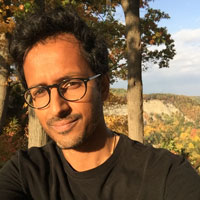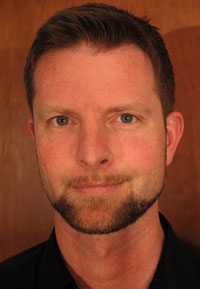



As part of the 2017-2018 Convocation Series “Transformations” at Fredonia, the Archives and Special Collections in Reed Library and the Department of English are recognizing the 50th anniversary of the Stefan Zweig Collection at Reed Library and the 75th anniversary of the death of its creator, Austrian author Stefan Zweig (1881-1942).
Acknowledgment of these momentous dates will include three separate events in October and November, all of which lend variant meanings to the theme of transformation by focusing on questions of exile, race, national identity/nationalism and loss of cultural heritage as seen through the perspective of a Zweig scholar, a documentary filmmaker, and the archival documents that comprise the Stefan Zweig Collection.
The first event, on Wednesday, Oct. 25, at 3:30 p.m., in the Reed Library Exhibit Area, will be an opening reception for the exhibit, “Zweig at Fredonia: 50 Years of Transformation,” which draws upon correspondence and other archival documents found in both the Stefan Zweig Collection and the Robert Rie Papers.
The exhibit will, in part, trace the relationship between Zweig and Dr. Robert Rie, former professor of German at Fredonia, without whose initial vision and actions Fredonia would not possess the Zweig archive. Rie, like Zweig, was an exile who emigrated from Austria to America in 1938 and who, also, like Zweig, wrote on issues of race and nationalism from a decidedly European perspective.
 |
|
Dr. Ashwin Manthripragada |
Documents from both the Zweig and Rie collections related to such “transformative” events as the Holocaust, World War I and the experiences of both men as exiles will be highlighted in the exhibit. However, the focus of the exhibit will center on the evolution of the Zweig archive at Fredonia from the earliest accession in 1967 of correspondence between Zweig and his first wife, Friderike, to later acquisitions from surviving heirs, comprising the bulk of the collection which includes over 6,000 items of correspondence written to Zweig alongside manuscript drafts of many of his works, personal documents, photographs and other materials. The exhibit will run through Nov. 19.
Immediately following the exhibit opening will be the Mary Louise White Lecture at 4:30 p.m. in the Science Center’s Kelly Family Auditorium (Room 105) featuring Dr. Ashwin Manthripragada, Zweig scholar and professor of German Studies at Hobart and William Smith College.
Dr. Manthripragada’s lecture, “Unpublished Racism: Stefan Zweig on Blackness in America,” will focus on Zweig’s little-known writings on race in America as well as his hitherto largely unknown interactions with black leaders during a 1930s lecture tour in the American South.
For his groundbreaking study, Manthripragada draws in part on key transformative archival documents, including those discovered during a research visit to Fredonia’s Archives and Special Collections in the summer of 2016. More information on Manthripragada’s scholarship on Zweig, “Stefan Zweig’s Fear of Postcolonialism,” is available online, which addresses Zweig’s struggle with the “end of Empire.”
 |
|
Tim Slade |
The final event will be the screening of the recent documentary, “The Destruction of Memory,” and a post-screening panel discussion with the film’s director, Tim Slade, on Monday, Nov. 13, at 5:30 p.m., in McEwen Hall Room 209.
Based on Robert Bevan’s book of the same title, “The Destruction of Memory: Architecture at War,” the film documents the erasure in this past century of cultural touchstones worldwide, and by default the collective memory of nations and society as a whole, whether through the vehicle of war or other premeditated acts of violence and destruction.
The film highlights various locations in the Middle East (Palmyra, Syria and the Iraqi National Museum); Banja Luka, Bosnia and Herzegovina (whose mosques were destroyed during the Bosnian War), and, most pertinent to Zweig’s time, Dresden, Germany and the devastating effects of the World War II bombings.
Though at times geographically and temporally disparate from the world Zweig occupied, the themes of the film, nonetheless, resonate with Zweig’s own personal loss of culture, particularly in the attention paid to the effects of war on European Jewish patrimony.
The panel will include Fredonia faculty Dr. John Staples (History) and Dr. Christina Jarvis (English) along with Ken Fox, film archivist for the Moving Image Department at the George Eastman Museum in Rochester. An interview with Mr. Slade about the making of the film can be read online the Studio International website.
The Zweig at Fredonia: 50 Years of Transformation commemorative events are sponsored by the President’s Office with additional support provided by the English department’s Mary Louise White Fund established through the Fredonia College Foundation, and the Carnahan Jackson/Reed Library Endowment Fund.
All events are free and open to the public.